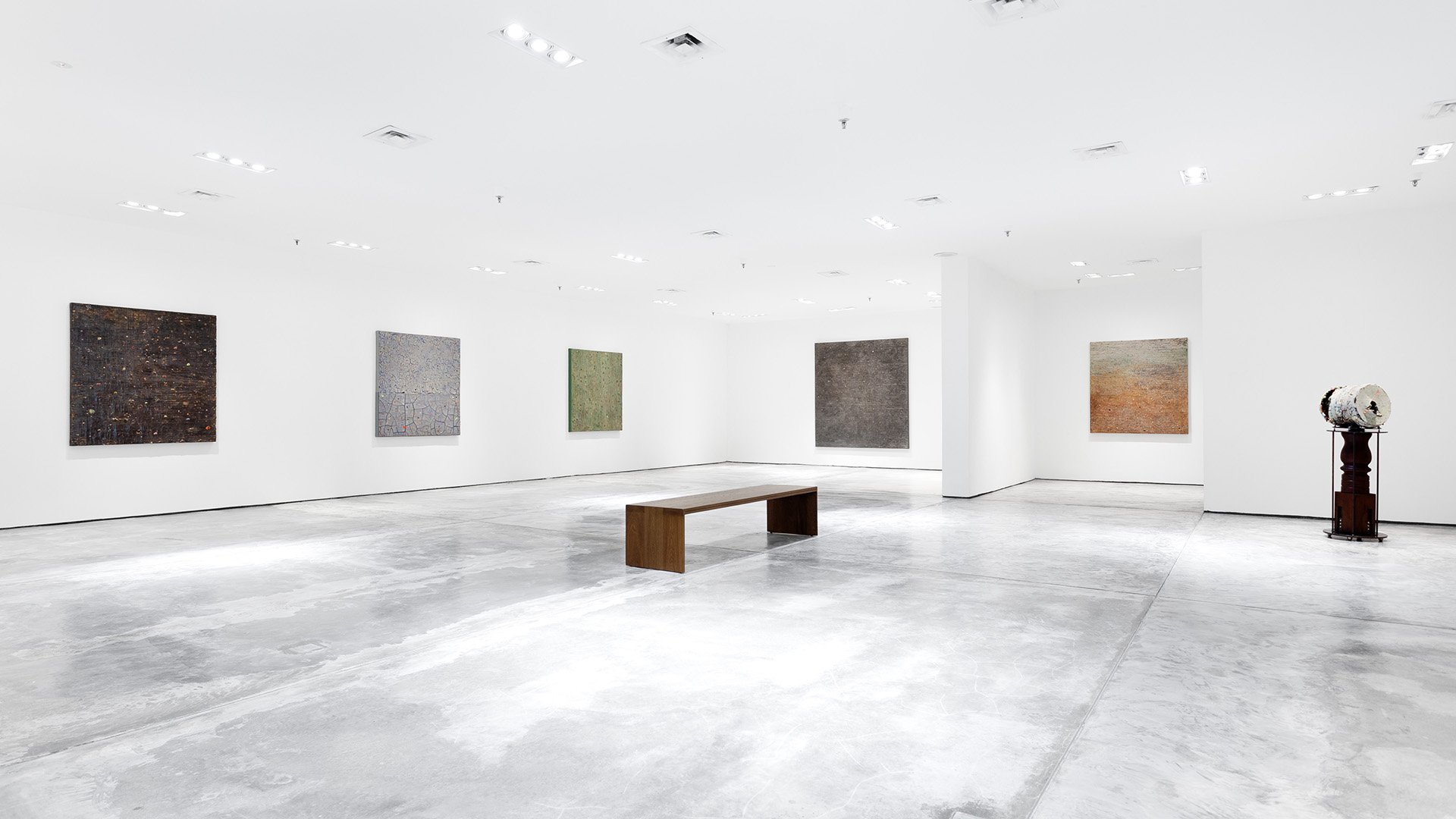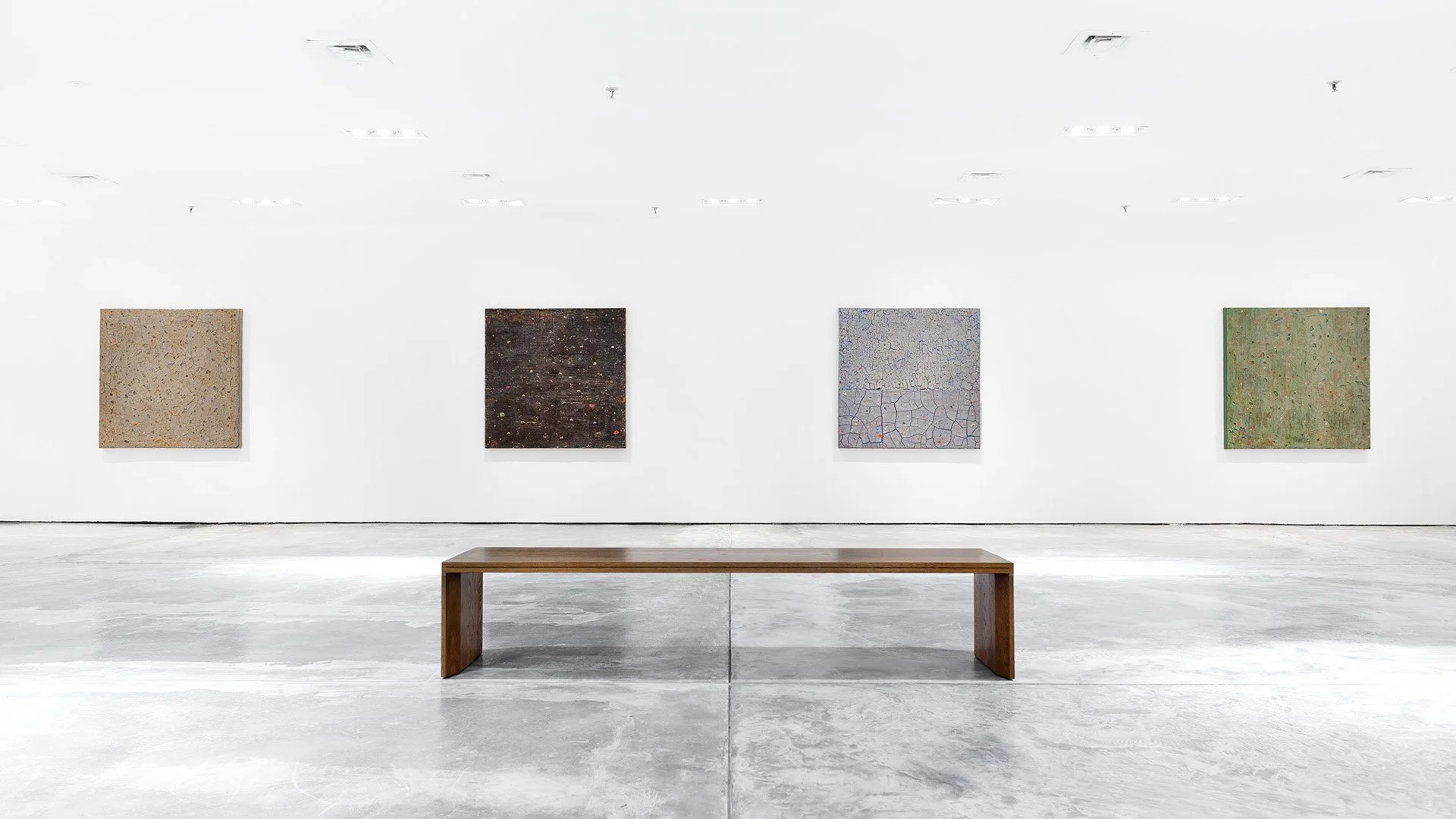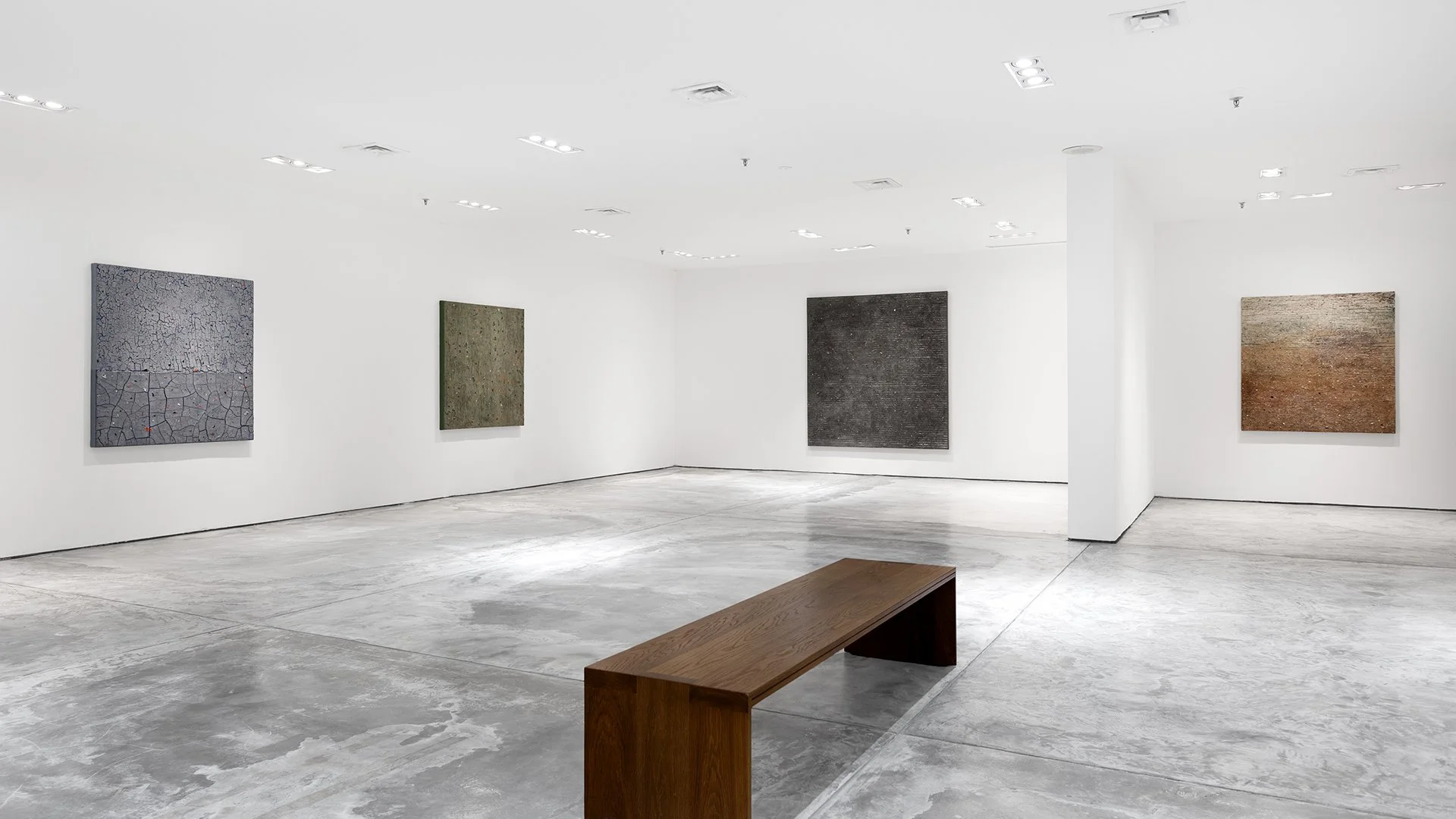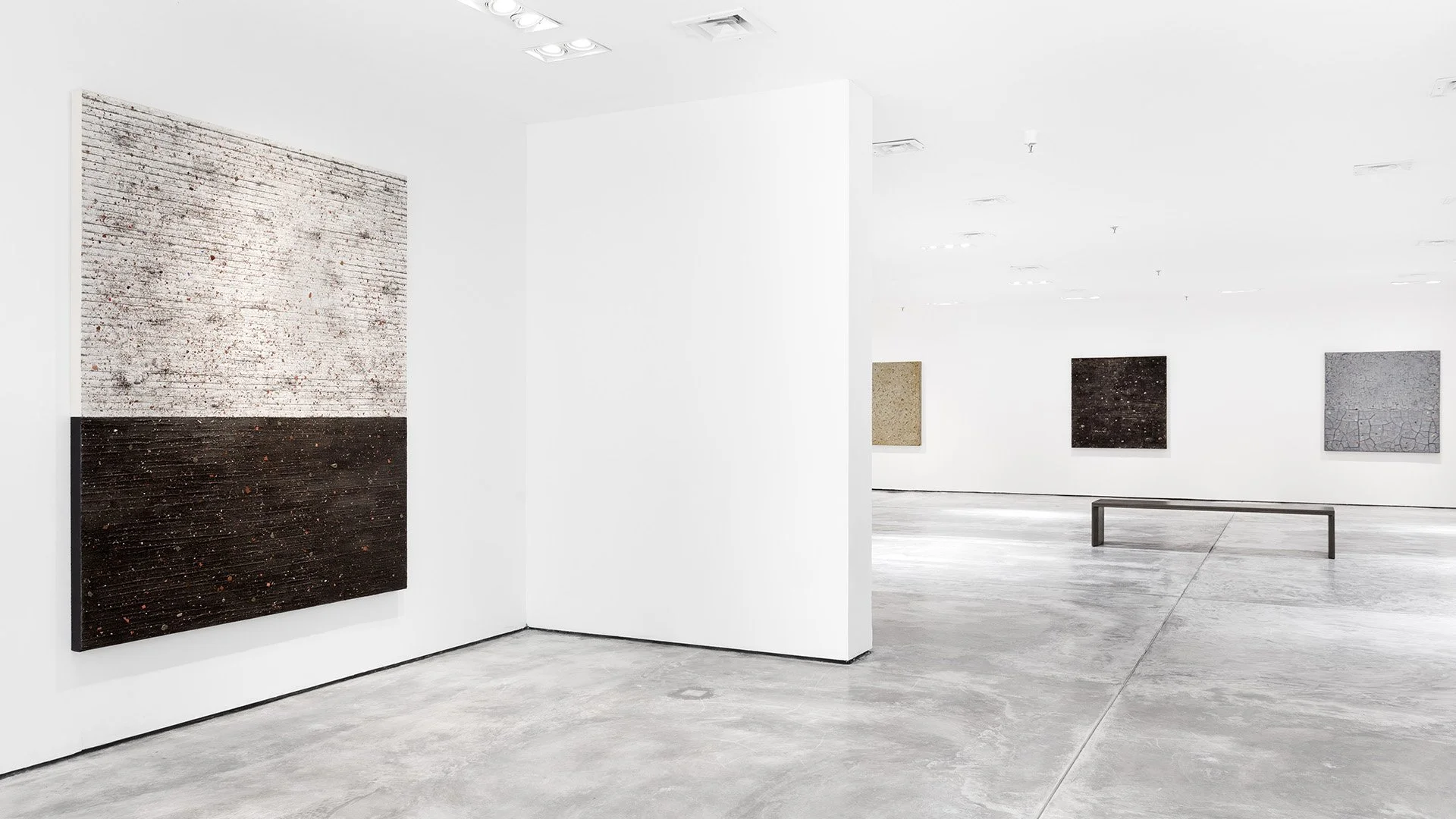Rekah
a solo exhibition by Umibaizurah Mahir @ Ismail
-

Keruh Tak Bermusim
Mixed media (wild clay, soil, sand, ceramic pigments, lacquer, decals, custom-made ceramic shards) on canvas
122cm x 122cm | 2024 -

Pesta Mawar
Mixed media (wild clay, soil, sand, ceramic pigments, lacquer, decals, custom-made ceramic shards) on canvas
183cm x 183cm | 2024 -

Mega Putih
Ceramic, lacquer, steel rods and wood
133cm x 65.5cm x 40cm | 2024 -

Batas Langit
Mixed media (wild clay, soil, sand, ceramic pigments, lacquer, decals, custom-made ceramic shards) on canvas
122cm x 122cm | 2024 -

Dansa Debu dan Angin
Mixed media (wild clay, soil, sand, ceramic pigments, lacquer, decals, custom-made ceramic shards) on canvas
122cm x 122cm | 2024 -

Jalur Kemelut
Mixed media (wild clay, soil, sand, ceramic pigments, lacquer, decals, custom-made ceramic shards) on canvas
183cm x 153cm | 2024
Multidisciplinary artist Umibaizurah Mahir @ Ismail, in her first solo exhibition with SARENG Gallery, has crafted a series of clay-based works that engages with the natural environment, both thematically and materially. Informing their conceptual premise is the artist’s concern with the ecological cost of urban expansion, driven by developmental desire and extractivist exploitation, while her raw materials are locally sourced clay, soil, sand and stone, foregrounding the colours, textures and inherent beauty of these naturally occurring elements. Works in the exhibition include a series of clay paintings and ceramic sculptures. The title of the show ‘Rekah’, translates to ‘crack’, a motif that is present physically in the surface of the clay, and in the earth from which Umi derives her materials. “Cracks in the earth”, she remarks, “channel water and air, nurturing the soil and sustaining a rich tapestry of plant and animal life, facilitating root growth and nutrient absorption. These natural fractures create a dynamic stage for biodiversity”. ‘Rekah’ ultimately invites the viewer to reflect on the urgency of environmental sustainability and renewal, emphasizing the importance of maintaining organic processes.







